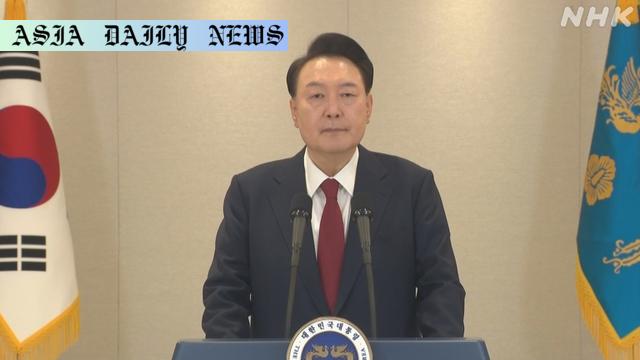Insurrection: South Korean prosecutors indict President Yoon Suk-yeol for orchestrating an insurrection, marking an unprecedented event.
President Yoon Suk-yeol has been indicted for orchestrating an insurrection.
Yoon’s impeachment is under review by South Korea’s Constitutional Court.
This marks the first time in South Korean history a sitting president has been indicted.
Prosecutors acted following a brief martial law declared by Yoon last month.
South Korean law allows Yoon to remain in detention for six months post-indictment.

Historic Indictment of a Sitting South Korean President
The political climate in South Korea reached a historic turning point following the indictment of President Yoon Suk-yeol. As of Sunday evening, South Korean prosecutors officially announced charges against Yoon for orchestrating an insurrection during a turbulent period in office. This unprecedented legal action marks the first instance in which a sitting leader has faced such serious charges in the country’s history. The case has gripped the attention of not only South Korea but also the international community.
Timeline Leading to the Indictment
President Yoon’s fate appeared increasingly sealed after he declared martial law last month, a controversial move widely criticized both domestically and internationally. Yoon was subsequently arrested on January 19 under suspicions of orchestrating an insurrection, a significant escalation from prior political scandals that had embroiled his administration. A week after his arrest, prosecutors chose to indict him after conducting thorough investigations and consultations with legal experts.
Legal and Political Implications
Under South Korean law, sitting presidents are not immune to prosecution for serious crimes, such as the orchestration of an insurrection. This legal framework paved the way for Yoon’s indictment. Additionally, the Constitutional Court will separately deliberate on the impeachment motion passed against him, signaling a dual-track judicial and constitutional approach to addressing the crisis. If found guilty in the criminal court or if the impeachment is upheld, Yoon’s presidency is likely over, a heavy blow to his political career and legacy.
Media and Public Reactions
Local media outlets have been abuzz with coverage of the case, which has captured the public’s attention. Reports indicate that prosecutors had to twice seek an extension of Yoon’s arrest from the court, emphasizing the complexity and high stakes of their investigation. Adding to the drama, public opinion remains polarized—while some see Yoon’s actions as a betrayal of democratic principles, others view his detention as politically motivated.
Long-Term Consequences for South Korea
The indictment of a sitting president is likely to have profound ramifications for South Korea’s political landscape. Analysts suggest it could trigger reforms in the presidency’s scope of power to prevent future abuse. International observers are also watching closely, as South Korea’s democratic credentials are being tested under the strain of this crisis. The situation could either bolster the nation’s commitment to the rule of law or expose systemic vulnerabilities in its institutions.
What Comes Next?
With Yoon now indicted, the focus shifts to his upcoming criminal trial and the Constitutional Court’s deliberation on his impeachment. The court has the authority to rule within six months on the validity of his removal, adding urgency to the resolution of this crisis. In the meantime, Yoon remains in custody, facing a mix of public disgraces and impending legal battles that will determine his ultimate fate. Whatever the outcome, this pivotal moment will undoubtedly be remembered as a defining chapter in South Korea’s political history.
Commentary
The Political Earthquake in South Korea
South Korea is no stranger to political controversies, but the indictment of a sitting president for orchestrating an insurrection sets an unprecedented precedent. President Yoon Suk-yeol’s indictment highlights both the robust legal framework of the nation and the complexities of conducting governance in a divided political climate. The unfolding scenario reminds us of the fragility of democratic institutions and the need for accountability, regardless of one’s political stature.
The Delicate Balance of Democratic Principles
At the heart of this case lies a fundamental question: How can a democracy reconcile the need for strong leadership with the dangers of authoritarian overreach? Yoon’s declaration of martial law and the apparent overreach that followed serve as a cautionary tale for leaders worldwide. Democracy thrives on checks and balances, and South Korea’s legal institutions and Constitutional Court are now under intense pressure to uphold these principles without succumbing to public or political pressures.
A Moment of Reflection for South Korea
This moment demands reflection not only domestically but also across the global community. South Korea has long been considered a model of democratic development in Asia, and this incident serves as a stern reminder that no democracy is immune to internal challenges. If handled with fairness and adherence to the rule of law, this crisis can serve as a testament to South Korea’s democratic resilience. Conversely, any misstep could tarnish its global standing as a democratic beacon in the region.


